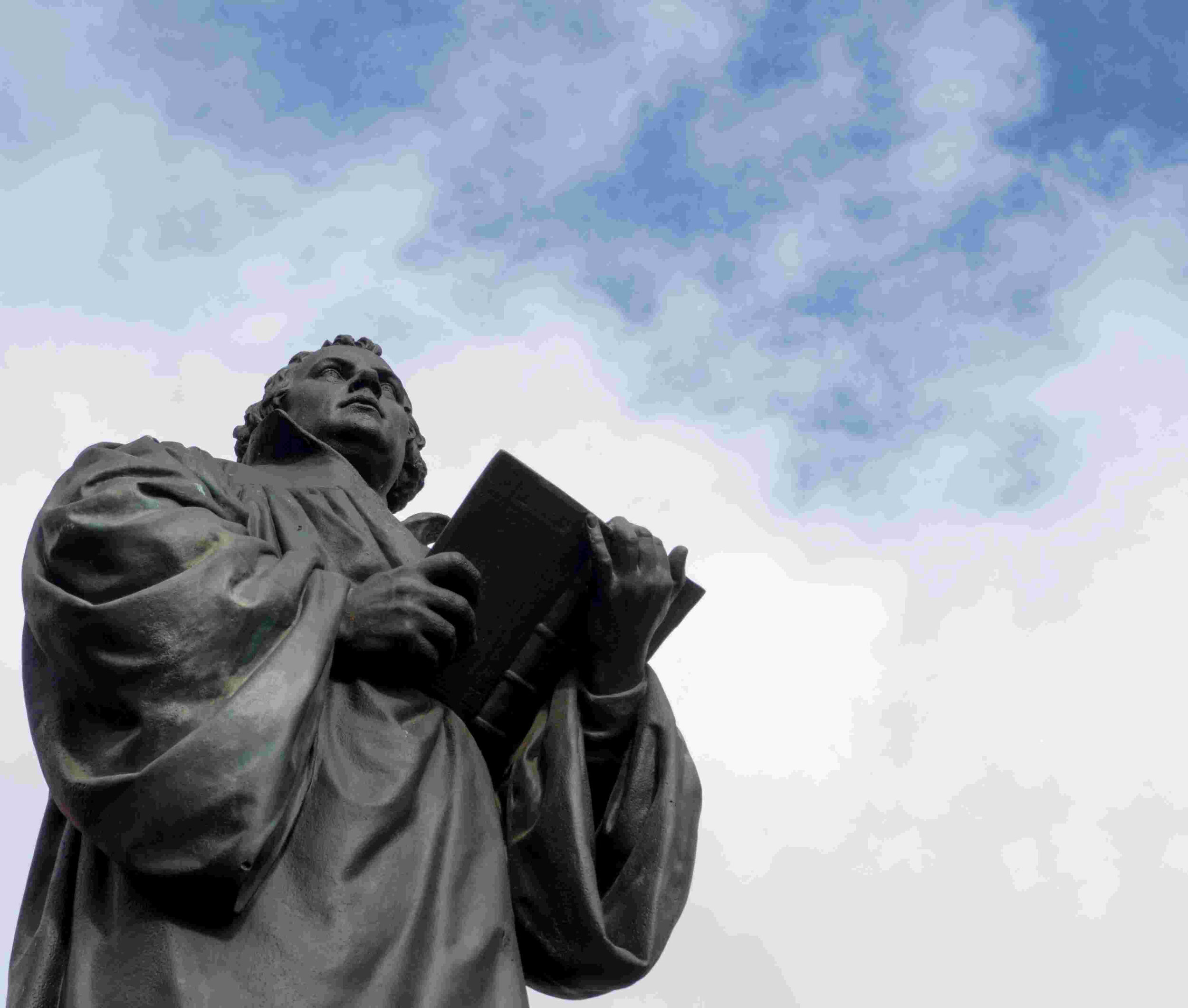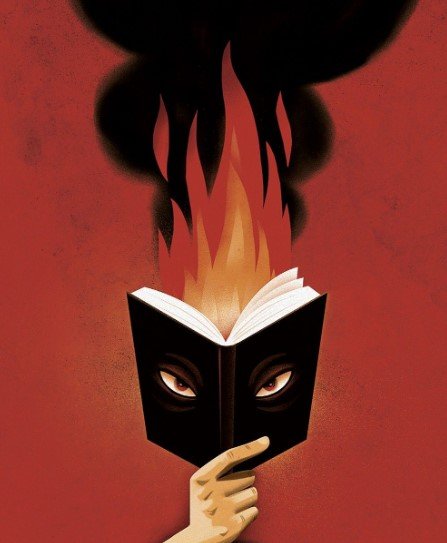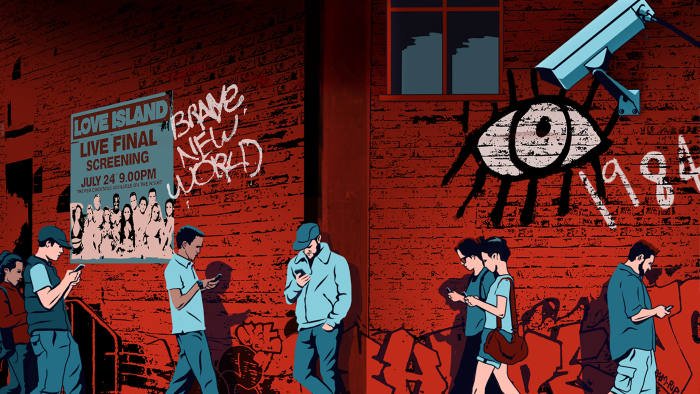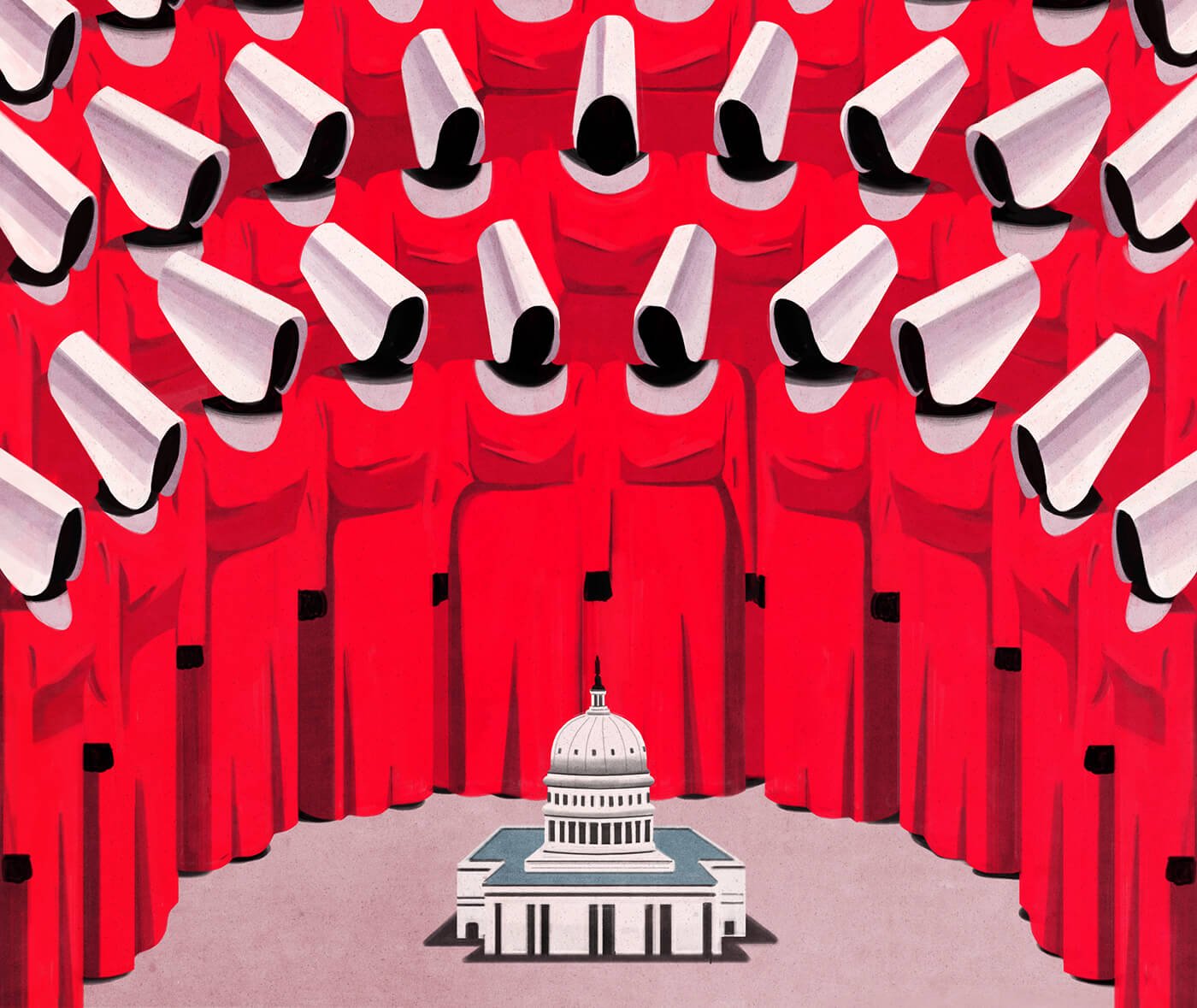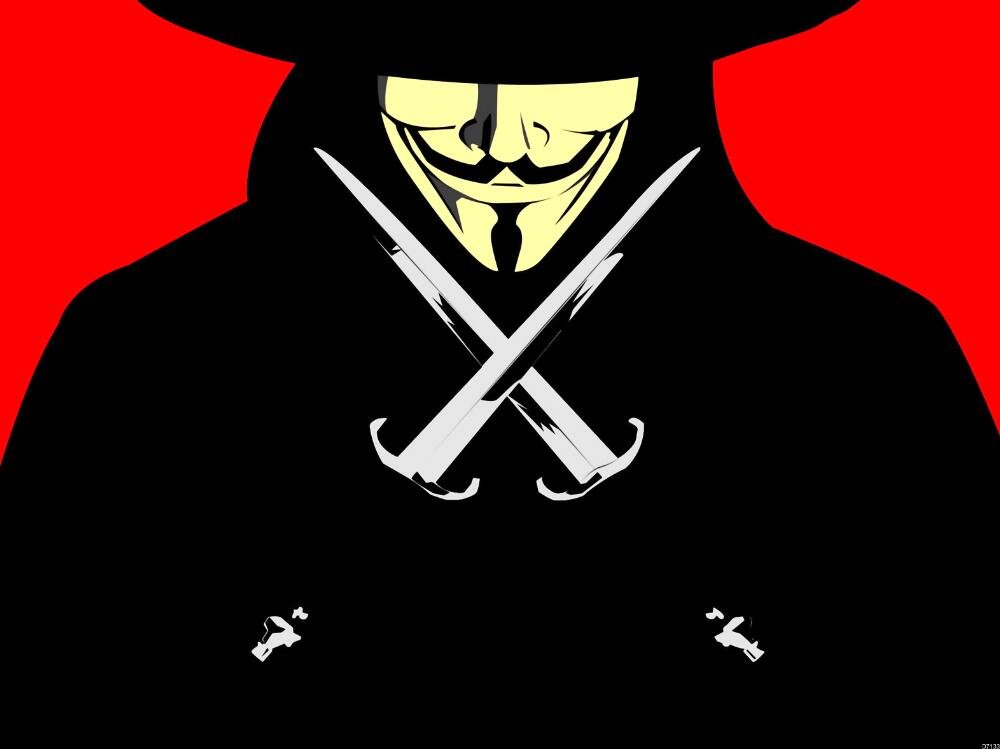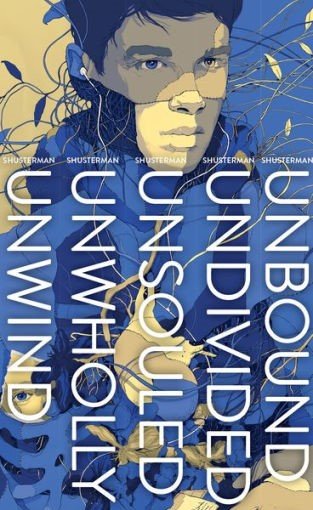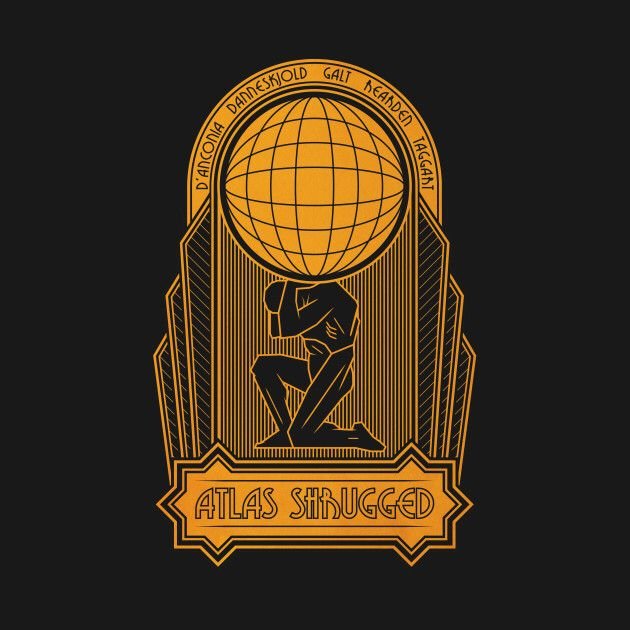The Fastest Growing Religion
The State is a Dystopian Religious Cult
You Might Also Like…
This article was first featured on Adam B. Coleman’s WrongSpeak's Substack
The Declining Trend of Religion in America
From 1973 to 2021, there has been a downward trend of the American confidence in organized religion, and within the United States those who prescribe to no religion whatsoever continues to grow and has so since the late 60s, early 70s*. Now, whatever your own personal beliefs be, the fact of the matter is this:
America was founded on a belief in God and not government as the highest power in the land. There is a reason “In God We Trust” has been such a prominent phrase in our nation since the Civil War. Yes, we can debate as to the extent and specific religion referred to when talking about “God”, but the sole purpose of the Establishment Clause was not to protect government from religion, but religion from government and has set a precedence that there is a clear difference (or at least should be) between worshipping a god and attributing all power to a governmental body.
* Self-described religious identification of Americans 2021 | Statista
Why Religion is Important
“Freedom prospers when religion is vibrant and when the rule of law under God is acknowledged.”
If you’re not worshipping a God in the orthodox sense, you are worshipping something.
When there is no God in your life, something will fill that god-shaped hole that you will pay homage to and sacrifice in its name. In other words, even if you're not religious, you have a faith.
Mark Manson, the author of The Subtle Art of Not Giving a F*ck, has talked about the psychological concept of what he terms “The God Value”*. In its simplest explanation, we all have subjective, value-based meaning within our lives which creates a value hierarchy within us, and for every individual, there is something that occupies that number one slot, aka the God Value.
Your God Value, or the thing you hold in highest regards creates the lens by which you see the world through. That lens then translates the world into reason—it gives the world and everything in it purpose for you in what is known as a metanarrative. This metanarrative is an overarching interpretation of events and circumstances that provides a structure for your beliefs, giving meaning to your experiences. Marxism explains everything through economical, and class power structures. Identity politics explains everything through race, sexual orientation, sexual attraction, and surface level characteristics. Religion does so through an actual God or Gods.
The way our belief system works is anything but novel. It’s human nature to need something bigger than ourselves, and is arguably why the first line in the First Amendment states freedom of religion and the prohibiting of the free exercise thereof.
This separation of church and state as established by the first line in the Bill of Rights was not a separation of morals, values, or even beliefs, but rather was to differentiate between the duties of attending to souls versus the duties of government.
* Another great interview where Mark Manson articulates this is on The Jordan Harbinger Show.
What is the Main Purpose of Religion?
The main purpose and duty of any religion is to attend to the needs of the souls of mankind and womankind. Now, there is a lot of subjectivity that lies within that jurisdiction. This does not make religion automatically evil or corrupt; it just makes it fallible, and unfortunately, the short sided cynicism of unorthodox worshippers give more grace to the politicians serving their side of the political aisle than they do religious leaders.
The most ironic thing of all, is the same people who radically remove “God” under the guise of liberalism and modernity, advocating for a moral separation of church and state within executive authority, legislative power, and judicial oversight are often the very same people who approach politics with dogmatic behavior. When the State is your church, where is the separation at that point?
Modernity Versus Faith
“I believe in an America that is officially neither Catholic, Protestant nor Jewish ... where no religious body seeks to impose its will directly or indirectly upon the general populace or the public acts of its officials - and where religious liberty is so indivisible that an act against one church is treated as an act against all.”
Religion is argued by some as an archaic way of viewing the world—that it delves into the realm of superstition, which is one of the biggest arguments used by those leaving orthodox faiths. While it is true that the age of modernity and enlightenment did allow for science and reason to thrive over the mythological nature religion often talks about, the greatest strength of modernity has become its greatest weakness.
What do I mean by this?
Because the responsibilities religious faiths feel they have for those things of the soul, they are often founded on a set of values given to them from a higher power—they attribute a way of life to the spiritual health of an individual. Unfortunately, when people leave churches for one reason or another, especially when they leave in a state of cynicism, they often tend to attribute the values of the religion and the religious God to be false, and as a result are left with a god-shaped hole. Their ability to reason through the tools of modernity get in the way of the intangible, unmeasurable factors that religion desperately tries to address, even if it does so imperfectly.
Charity. Faith. Hope. These are but a few things that science cannot effectively measure but are core values a lot of religions espouse. If someone rejects these religious attributes, what does a society look like with no love? With no hope?
So, going back to Mark Manson.
If every individual has value they hold in highest regards, and that value does not come from the ideals of religion (which they don’t have to), then what becomes the highest power in the eyes of someone without a faith?
It’s a question that must be considered in this conversation.
The Dystopian Religion of the State
“Never confuse he specific sovereign with the principle of sovereignty.”
When it comes to looking at those people of faith, a common fallacy of someone who rejects religion as a [insert your construct here] is that faith-based individuals are resistant to change—that they are stuck in the old world where superstitious interpretations are regarded as truth. Not only is this surface level critique fundamentally flawed, but there’s a great irony that needs addressing.
It was the Protestant Reformation that helped catapult human reasoning into an Age of Enlightenment. When Martin Luther posted his 95 theses, he wasn’t just challenging Catholicism and State sponsored religion, but encouraged the modern world to ask questions (faith based or not) without fear of recourse from establishment power. This moment empowered free thinking for Christians, Muslims, Jews, Atheists, and more.
So again, I ask: when there is no God, what is the god?
We all know our limitations, consciously or subconsciously, and as a result, will naturally lean something to make up the differences of our human weaknesses.
In conclusion, I argue this: because of the declining trend of religion in America, people are turning to an unorthodox religion, that being the State, and as a result, institutions are being put into place to perpetuate the worship of government over a God.
Politicians have become prophets, predicting cataclysmic events and offer solutions the State can provide to save the planet.
Church buildings have become the training ground for political activist activity* clearly blending politics with religious faith.
Until roughly 2015 with the Obergefell v. Hodges decision, marriage consisted of a sexual difference for the broad, general purpose of procreation, family building, and the rearing and education of children. That was the essential foundation of marriage and more often than not, was attached to religious and spiritual practices. Redefining marriage as a union between two people is setting the precedence that there is no significant difference between a man and a woman, something might I add is a deeply held religious and spiritual belief across the board. From Muslims to Christians to Orthodox Jews, there is such thing as sexual difference while the State is stating that there isn’t. The only way a union between a man and a woman can be labeled the same as a union between a man and a man, or a woman and another woman is if man and woman are the exact same, which is the essential premise of the grooming ideology of transgenderism which has been politicized and weaponized.
The public school system has become the State’s seminary where doctrine is taught from the political biases from teachers and administrators.
Above all, the overarching narrative of abortion tries masking the simple fact that it is about absolving others of the consequences of their actions, and in rare cases, the actions of others. It’s as if the State and “medical technology” are saying they can atone for the mistakes of others by erasing the life of a baby and has become the sacramental sacrifice** of the State.
The system is set up to create compliant followers and not free thinkers. The dystopian religion of the State preaches it is the answer to Zion and promotes it through a degenerative culture of pleasure seekers while keeping an ever-watchful eye on our every act.
The easy solution is this: don’t be a useful idiot.
* Roughly minute marker 41:30 (Interview with Delano Squires towards the end)
** Original video of an actual abortion alter has been taken down on YouTube (by the creator or platform, it is yet to be determined), but Drew Hernandez posted the video on his Twitter account: https://t.co/VhNuXZwxKQ https://t.co/J5I9i7mJuV" / Twitter


